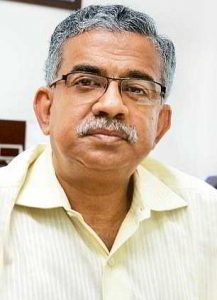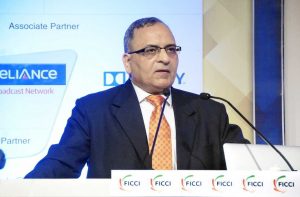In a shocking answer to an RTI query, the DGCA had said it lost all data related to planes and pilot licences in August 2015. Will this compromise national security and the lives of passengers?
~By Shobha John
In a shocking case of laxity and devil-may-care attitude, it has emerged that the Directorate General of Civil Aviation (DGCA) lost all data pertaining to flights and pilot records in August 2015. At least that is what it told the Central Information Commission (CIC) when asked to answer an RTI filed by activist Anil Sood.
Sood had sought the following information from the DGCA: List of pilots registered with the DGCA as on November 30, 2015; list of type-rated pilots (including those who were Indian and foreign) and list of first officers (co-pilots) during the same period.
Speaking to India Legal, Sood said: “I had filed this RTI with the DGCA in 2014 but it refused to answer my queries. Subsequently, I had to go to the CIC in 2015 and the case was heard later in 2016.” The DGCA told CIC that its servers crashed in August 2015 and all the above information had “got destroyed”. It further stated that it was “in possession of some of the records in the physical form that are voluminous in nature and hence, information on any particular licence holder could be provided….However, the information sought in bulk was not possible at this stage.”
In a scathing indictment of the DGCA, Bimal Julka, the Information Commissioner, said: “The Commission observed that this was an appalling state of affairs in respect of record keeping by the respondent public authority (DGCA) especially when it concerns national security and safety of passengers.” He asked the DGCA “to revisit the issues raised by the appellant in a more serious and considered manner rather than adopting a casual approach in replying to the RTI application”. He asked it to “consider maintaining such data in a digitised format”.
If this is the casual attitude of the regulator of a highly technical and sensitive sector such as aviation, how safe are the lives of passengers and airline crew? In such a scenario, who would take responsibility if another 9/11 occurred, asked Sood. “If aviation security is breached, the consequences will be huge. Therefore, there is an urgent need to look into such a serious lapse on the part of DGCA and initiate proper action,” he said.
If indeed records have been lost, it is a staggering loss. It nullifies all that has been done in the past. Data is the most important thing in aviation. A loss of this could affect India’s safety ranking by ICAO.
—EK Bharat Bhushan, former D-G, DGCA
Another reason, he alleged, for the DGCA claiming that the server had crashed was because relatives of many DGCA employees were pilots in India. “If these records are made available, the nexus will be out in the open. The DGCA is taking everyone for a ride. I have sent this order to the International Civil Aviation Organisation (ICAO) too,” said Sood.
STAGGERING LOSS
This serious lapse by the DGCA has shocked those in the aviation sector. EK Bharat Bhushan, the former director-general of the DGCA (2010-2012) who fought against corruption in this organisation and began the digitalisation of records there, told India Legal: “If indeed records have been lost, it is a staggering loss. It nullifies all that has been done in the past. Data is the most important thing in aviation. A loss of this could affect India’s safety ranking by ICAO.”
Bhushan, who is presently Administrative Member, Central Administrative Tribunal, Ahmedabad Bench, added: “Surely the DGCA would have a backup system. I had started an e-project when I was in the DGCA whereby pilot licences were computerised and flight safety and administrative records too were to follow. I don’t know the state of that now.”
Incidentally, a downgrade by ICAO would seriously affect Indian aviation as airlines from India will not be allowed to begin new routes or sign agreements. In 2012, ICAO had placed India among 13 countries which performed the worst in air safety. This also led to the FAA downgrading India. The ratings were restored in 2015. The next ICAO audit is likely in November this year.
India Legal spoke to insiders in the aviation sector and what was revealed was a distinct lack of trust in the DGCA. A senior commander of an airline said that the loss of flight data was a serious breach of safety. “While airlines are supposed to preserve data of all flights for three months, the DGCA is supposed to keep them longer. These are usually related to incidents/accidents. I doubt if this is a server failure; it could be an attempt by the DGCA to wipe out data of a violation by some influential pilot.”
The Commission observed that this was an appalling state of affairs in respect of record keeping by the respondent public authority (DGCA) especially when it concerns national security and safety of passengers.
—Bimal Julka, Information Commissioner
Loss of data on pilot licences is a serious issue as it will be easy for a rogue pilot to assume the identity of a legitimate aviator and commit an act of terror. “Loss of this data means you don’t know how many hours a pilot has flown, what flights/routes he has done and what violations have been committed. This equalises a genuine pilot and a fraud one. Flight safety in India is indeed a myth.”
Another commander asked how the DGCA could say it had lost all data when it asks each and every document in physical form. “The DGCA is not paperless. Every time we send our papers for licence renewal, the DGCA asks for a hard copy of our radio telephony licence, route checks, instrument ratings, etc. So there is always a physical back-up. Any organisation which doesn’t want to go digital, has something to hide.”
It is obvious that passengers are on a wing and a prayer.
Lead picture: If aviation security is breached, the consequences will be huge.




